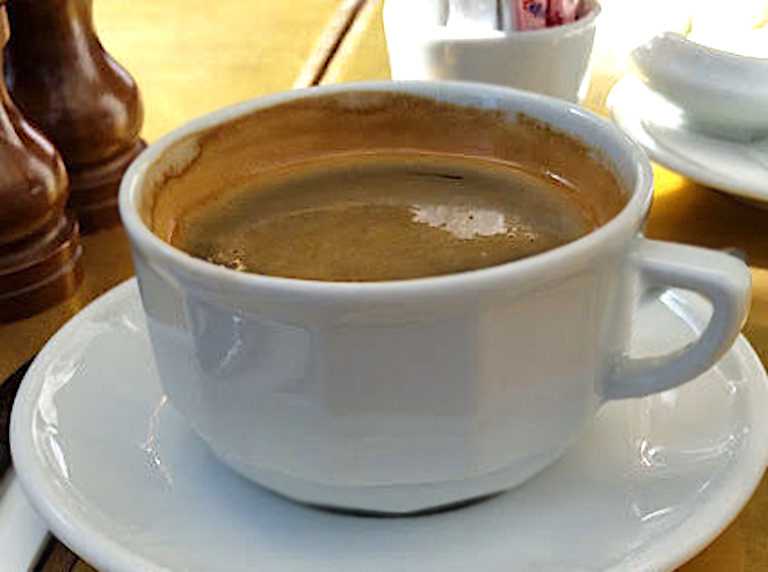Science
New Study Links Coffee Consumption to Reduced Heart Rhythm Disorders

Recent research indicates that consuming coffee may have protective effects against atrial fibrillation (AFib), a prevalent heart rhythm disorder characterized by rapid and irregular heartbeats. This condition, which can lead to serious complications such as stroke or heart failure, has seen rising rates in recent years, largely attributed to aging populations and increasing obesity.
The study conducted by scientists from the University of California – San Francisco examined the relationship between coffee consumption and heart health. The findings, published in the Journal of the American Medical Association, suggest that caffeine may contribute to a healthier heart rhythm by influencing activity levels, blood pressure, and inflammation.
Insights from the DECAF Clinical Trial
The research, known as the DECAF trial (Does Eliminating Coffee Avoid Fibrillation?), involved 200 participants who were regular coffee drinkers diagnosed with persistent AFib or atrial flutter, a related condition. All participants were scheduled to undergo electrical cardioversion, a procedure aimed at restoring normal heart rhythm. They were randomly assigned to either consume at least one cup of caffeinated coffee or an espresso shot daily or to abstain from coffee and other caffeinated beverages for a period of six months.
Coffee beans contain over 100 biologically active compounds that may reduce oxidative stress and inflammation, enhance insulin sensitivity, boost metabolism, inhibit fat absorption in the gut, and block receptors involved in abnormal heart rhythms. The results revealed a significant finding: participants who consumed one cup of caffeinated coffee daily had a 39% lower risk of developing AFib compared to those who abstained.
Re-evaluating Caffeine’s Role in Heart Health
These findings challenge previous medical guidance that advised individuals with AFib and related heart issues to avoid caffeine due to concerns that it might exacerbate symptoms. In contrast, the study shows a potential benefit of coffee consumption for individuals with heart rhythm disorders.
Lead researcher Gregory M. Marcus noted, “Coffee increases physical activity, which is known to reduce atrial fibrillation.” He added that “caffeine is also a diuretic, which could potentially reduce blood pressure and in turn lessen AFib risk.” The researchers also pointed out that coffee drinkers may be substituting less healthy beverages, such as sugary sodas, with coffee, further contributing to improved heart health.
The implications of this research are significant for those managing AFib and related conditions. As the rates of AFib continue to rise globally, understanding the potential benefits of everyday dietary choices like coffee could have meaningful impacts on public health strategies and individual treatment plans.
As the medical community continues to explore the connections between lifestyle factors and heart health, this study adds a new perspective on caffeine’s place in the diets of individuals affected by atrial fibrillation.
-

 Science3 months ago
Science3 months agoToyoake City Proposes Daily Two-Hour Smartphone Use Limit
-

 Top Stories3 months ago
Top Stories3 months agoPedestrian Fatally Injured in Esquimalt Collision on August 14
-

 Health3 months ago
Health3 months agoB.C. Review Reveals Urgent Need for Rare-Disease Drug Reforms
-

 Technology3 months ago
Technology3 months agoDark Adventure Game “Bye Sweet Carole” Set for October Release
-

 World3 months ago
World3 months agoJimmy Lai’s Defense Challenges Charges Under National Security Law
-

 Lifestyle3 months ago
Lifestyle3 months agoVictoria’s Pop-Up Shop Shines Light on B.C.’s Wolf Cull
-

 Technology3 months ago
Technology3 months agoKonami Revives Iconic Metal Gear Solid Delta Ahead of Release
-

 Technology3 months ago
Technology3 months agoApple Expands Self-Service Repair Program to Canada
-

 Technology3 months ago
Technology3 months agoSnapmaker U1 Color 3D Printer Redefines Speed and Sustainability
-

 Technology3 months ago
Technology3 months agoAION Folding Knife: Redefining EDC Design with Premium Materials
-

 Business3 months ago
Business3 months agoGordon Murray Automotive Unveils S1 LM and Le Mans GTR at Monterey
-

 Technology3 months ago
Technology3 months agoSolve Today’s Wordle Challenge: Hints and Answer for August 19









